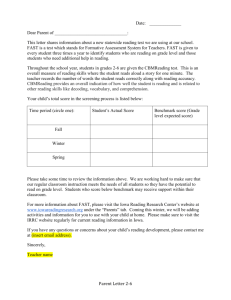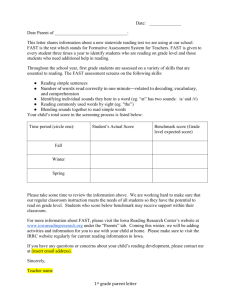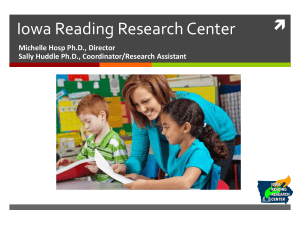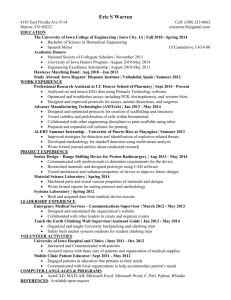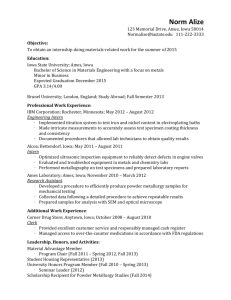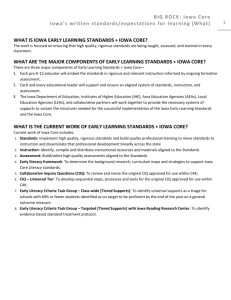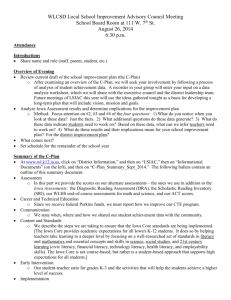Parent Notification Regarding Substantial Deficiency
advertisement
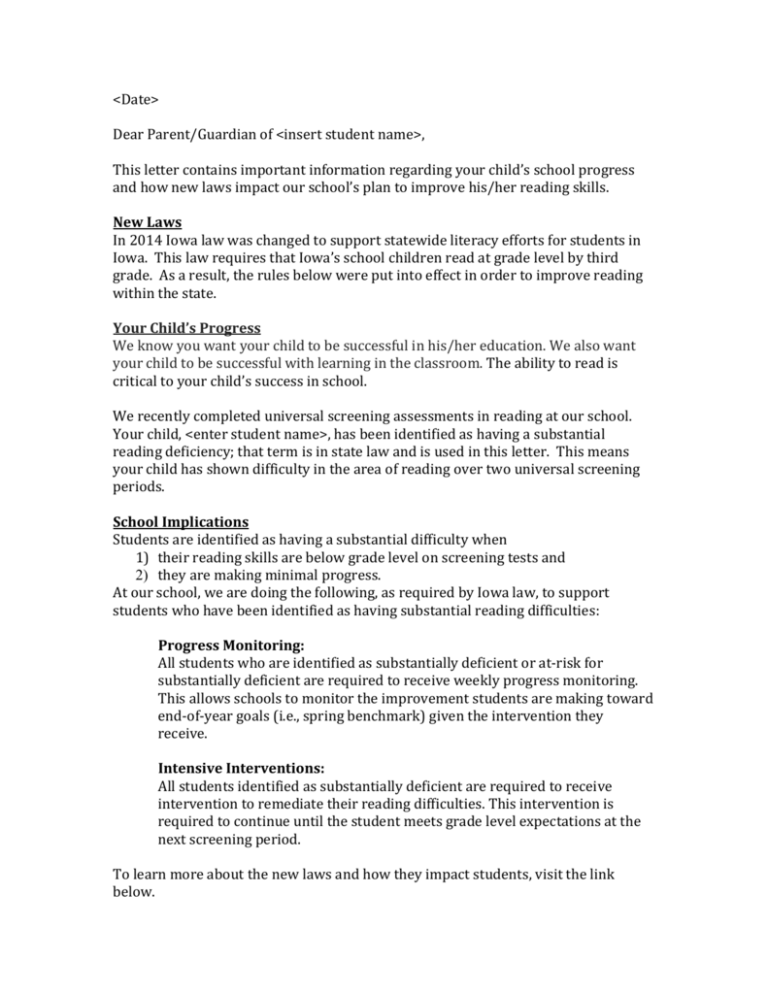
<Date> Dear Parent/Guardian of <insert student name>, This letter contains important information regarding your child’s school progress and how new laws impact our school’s plan to improve his/her reading skills. New Laws In 2014 Iowa law was changed to support statewide literacy efforts for students in Iowa. This law requires that Iowa’s school children read at grade level by third grade. As a result, the rules below were put into effect in order to improve reading within the state. Your Child’s Progress We know you want your child to be successful in his/her education. We also want your child to be successful with learning in the classroom. The ability to read is critical to your child’s success in school. We recently completed universal screening assessments in reading at our school. Your child, <enter student name>, has been identified as having a substantial reading deficiency; that term is in state law and is used in this letter. This means your child has shown difficulty in the area of reading over two universal screening periods. School Implications Students are identified as having a substantial difficulty when 1) their reading skills are below grade level on screening tests and 2) they are making minimal progress. At our school, we are doing the following, as required by Iowa law, to support students who have been identified as having substantial reading difficulties: Progress Monitoring: All students who are identified as substantially deficient or at-risk for substantially deficient are required to receive weekly progress monitoring. This allows schools to monitor the improvement students are making toward end-of-year goals (i.e., spring benchmark) given the intervention they receive. Intensive Interventions: All students identified as substantially deficient are required to receive intervention to remediate their reading difficulties. This intervention is required to continue until the student meets grade level expectations at the next screening period. To learn more about the new laws and how they impact students, visit the link below. https://www.educateiowa.gov/sites/files/ed/documents/2014-0826EarlyLiteracyGuidance.pdf School/Family Partnership We would like to partner with you in order to improve your child’s reading skills. Part of this partnership will include regular communication. Connecting: We will provide updates on your child’s progress throughout the school year. We encourage you to talk with your child’s teacher about any questions or concerns you may have. Parent/School Contract: We will follow up with a contract that will outline the school’s responsibilities and how we will partner with you to improve your child’s reading skills. More information regarding a contract will be forthcoming. We look forward to partnering with you in order to improve your child’s reading skills. Please contact <insert contact person> with any questions or comments you may have. Sincerely, School/Family Partnership Research shows that reading proficiency by third grade is an important predictor of school success. Early identification and support of a child who is a struggling reader is essential and increases their chances of success. We look forward to partnering with you in order to improve your child’s reading skills. As part of this partnership, we would like to work with you to ensure you have access to resources for your child. At-home support is critical to improving students reading skills. You may already have some resources, but, if you are interested, we are willing to share the following ways that can help families support students at home. IRRC Family Resources: The Iowa Reading Research Center (IRRC) offers an online collection of literacy resources. The IRRC worked with parents and educators across Iowa to evaluate online literacy tools that can be used to effectively support students at home. You can find these resources on the Iowa Reading Research Center website at: www.iowareadingresearch.org/resources Community Resources: <list community options available in the district that could support the child in reading outside of school—eg. local libraries, etc.> <Additional Resources provided by school> <eg. a curriculum night, any online tools provided by the school> If you have any questions about using these resources, please contact your child’s teacher. We will work with you to provide you with tools to ensure that your child receives support at school as well as at home.
